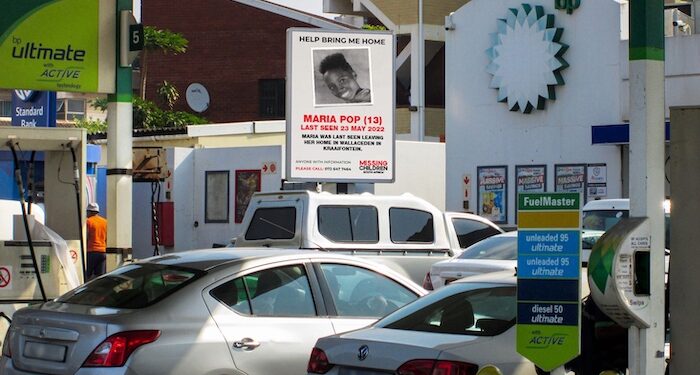If Covid-19 taught us anything, it’s that business is personal – and caring for more than the bottom line is the only way to ensure we all thrive through any disruption.
It all started with a virus.
For outdoor media owners, business had been ticking along nicely – until 2020. The industry was seeing a renaissance, thanks to innovation driven by the advent of digital out of home (DOOH) media. Consumers were out and about and in front of our billboards. The world was turning, at an increasingly rapid rate.
Then suddenly: STOP. Slow down. Global lockdown. Social distancing. A whole lot of hand sanitiser. Our industry, and all that relied on people being out and about and spending money, was dealt a massive blow.
The Covid-19 pandemic may have been one of the best things to happen to our industry.
When Covid-19 hit, most businesses went into survival mode: battening down the hatches by retrenching, cutting salaries, doing whatever we could to preserve cashflow and protect our bottom line. ‘It’s not personal, it’s business,’ may have been the theme song.
Except that it is personal. It is personal when your clients, competitors and suppliers face crippling financial pressure and are forced to liquidate. Or when colleagues who you cracked jokes with around the water cooler are suddenly jobless, with a family to feed. Or when the shell of your community starts to crack before your eyes.
A crisis of pandemic proportions forced us as an industry to sit up and get to grips with the fact that the health of any business is dependent on all its stakeholders. For our businesses to thrive, we, as an industry, had to come together and uplift those around us.
Opportunity and turbulence
At the time, Deloitte wrote that the media industry was, “riding a wave of tremendous opportunity amid the turbulence … will continue to evolve quickly, not only reckoning with ongoing trends and disruptions within the industry, but also in its continued response to pandemic-led behavioural changes.”
I would argue that this sense of community, elevated by the pandemic, has changed our behaviour fundamentally as an industry. We’re seeing media owners increasingly shape-shift into social enterprises, using our influence, commercial strategies and resources to address socioeconomic challenges.
Shortly after the pandemic hit, Tractor Outdoor launched its #SMEHeroes campaign and advertising fund, to support small and medium enterprises (SMEs) hardest hit by the pandemic. Through the fund, we provided these local businesses in our communities with free advertising via our national network. Our goal was to support them in surviving the country’s challenging lockdown period, through a healthy media package that would promote their business and keep it top of consumers’ minds.
This campaign was such a success that we repeated it again in 2021 and, in January this year, we unveiled our SME Launchpad. This permanent fixture allows small local businesses to benefit from widespread marketing exposure across Tractor’s roadside digitals and Digilite networks in Johannesburg, Cape Town or Durban – free of charge.
Standing for something
Media plays a crucial role in highlighting and addressing socioeconomic challenges in South Africa. Through our partnerships with non-profit organisations (NPOs), outdoor media can raise awareness of the impact these organisations have on communities, and even encourage others to start their own programmes.
We can also help connect social enterprises and NPOs with potential beneficiaries, customers, investors and partners, thereby leveraging our network to create new opportunities for them to grow and scale their impact.
Last year, Tractor partnered with Missing Children South Africa (MCSA), an organisation that assists the authorities whenever a child goes missing. When a child disappears, speed is of the essence in ensuring their safe return. DOOH enables rapid mass communication, and so, tapping into our national network, we were able to get these missing child notices flighted on screens across key areas within minutes of being alerted of a disappearance.
We know consumers – especially millennials and Gen Zs – want to engage with brands and businesses who don’t only sell a product or a service, but who stand for something. Richard Branson, the founder of the Virgin empire, has famously said that the brands that will continue to thrive are those that have a purpose beyond simply making money.
An Accenture study underpins this, finding that 62% of consumers seek purpose-driven companies that prioritise corporate sustainability, transparency and fair employment practices. I believe wholeheartedly that any business that doesn’t put sustainability and social awareness front and centre will not exist in five years.
In 2020, Tractor started the long process of registering as a Benefit Corporation (B Corp); a type of business entity that seeks to balance profit-making with a commitment to social and environmental impact. B Corps are for-profit companies that are legally required to consider the impact of their decisions not only on shareholders, but also on their workers, communities, and the environment. Our responsibility to shareholders will remain, but there’s now a greater emphasis on the role we play within our community.
Reflecting on the pandemic, we can see the silver lining in its once-all-consuming black cloud. It forced us as an industry and our communities to come together; morphing into social enterprises that understood the need to use our talents and resources for the survival and betterment of everyone.
I believe this new consciousness around the force for good that we, as the media, can be will only continue to grow and become more powerful, as we increasingly understand the link between our actions, their effect on our stakeholders, and the long-term viability of our businesses.

With a career spanning almost two decades and across multiple continents, Simon Wall is CEO and a founding shareholder of Tractor Outdoor. It is one of the largest independent media owners in South Africa, which specialises in connecting brands to consumers through its network of out of home (OOH) and digital out of home (DOOH) inventory.














